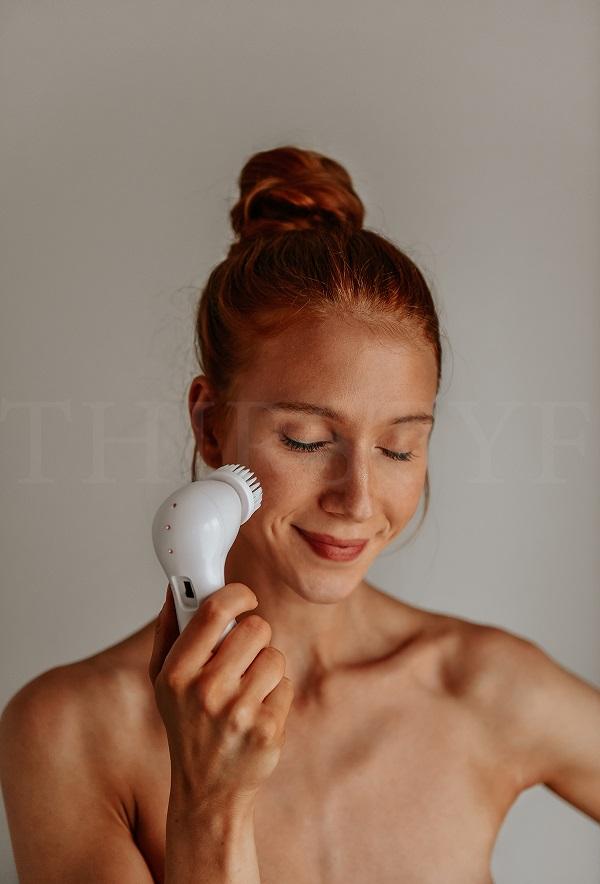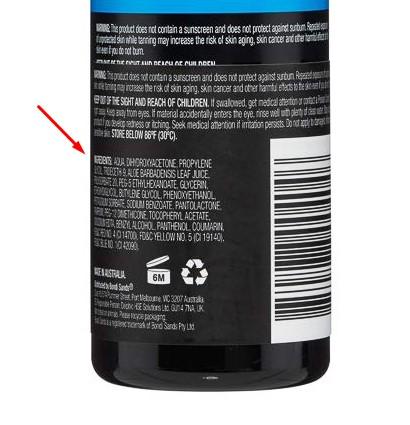Acne can be such a frustrating thing, on your face or also other parts of the body such as the back. No matter where it is, it’s equally as hard to remove, so you don’t want to use any products which may even make it worse. If you’re wondering whether your fake tan will be bad for your acne, read on to find out more.
Is fake tan bad for your face?
Your face consists of much more delicate skin than the rest of your body, and many people take much more care of their face and are more cautious about what they put on it, than the rest of the body.
In short, no, fake tan isn’t bad for your face, but those with existing skin concerns can sometimes find that fake tans don’t particularly help their skin and can slow the healing process.
The biggest skin concern when it comes to self-tanners is clogged pores. These are a result of some of the ingredients in the product working their way into your skin and settling into your pores. If you choose a self-tanner labeled as ‘non-comedogenic’, this shouldn’t be a problem.
Some ingredients may also be a little on the harsh side for your skin, but if you choose well-known, high-quality recommended self-tanners, the ingredients shouldn’t be ‘bad’ for your skin.
Is fake tan bad for acne?
Just like fake tan being ‘bad’ for your face as a whole, generally, fake tan isn’t bad for acne, but, again, there can be certain complications or ingredients which may not work well with acne. It’s important to know what to look out for and what works for you.
Most of the time, a good, high-quality self-tanner will not singlehandedly make your acne worse, and there may be other factors contributing to this. There is no doubt that some self-tanners can cause breakouts or irritate your acne, but this is usually because low-quality and cheap ingredients have been used.
Self-tanners specifically designed for the face are often gentler and contain less harsh ingredients which could potentially be damaging. If facial acne is something you are struggling with, self-tanning drops or mists are probably your best option, as they contain much more gentle ingredients and depend on the skincare ingredients you already use, too.
For acne on the body, there are still some self-tanners which you can use, and generally, non-comedogenic self-tanners are also suitable for use with acne.
Some ingredients that those with acne-prone skin should steer clear of include:
- Sodium chloride (salt)
- Alcohols, such as SD Alcohol 40, denatured alcohol, ethanol and isopropyl alcohol
- Coconut oil and cocoa butter
- Fragrance and essential oils
- Isopropyl myristate and isopropyl palmitate
How do you prevent self-tanner from settling in pores?
Some self-tanners will settle into your pores, which can cause future breakouts and clogged pores or blackheads. There are some self-tanner options that are safe to use without them settling into your pores (non-comedogenic ones), but not all are like this. If this is the case for you, there are still ways you can prevent your favorite self-tanner form settling into your pores.
So, as mentioned, you could always opt for a non-comedogenic self-tanner, which means it won’t settle into your pores and the ingredients are good for oily skin. This is, of course, the best and most reliable option, however, it may not be possible for everyone.
If you have a self-tanner which you like to use, but settles into your pores, here are some tips to follow to prevent this:
- Use an oil-free lotion: before applying your self-tanner, you can apply an oil-free lotion to your body, or oil-free moisturiser to your face, which can help to prevent the self-tanner settling into your pores. This can be effective, but your self-tanner won’t last as long, and you need to let it absorb into your skin before application (at least 30 minutes) so it’s not too greasy and doesn’t smudge or streak.
- Wait a while between showering and application: when you shower, your pores ‘open’ which means they are more likely to become clogged at this stage. After washing your face or showering, wait some time for your pores to close before application.
- Use a cold washcloth: if you’re just worried about the pores on your face, you can always use warm water to wash your face very thoroughly and apply a cold washcloth to it afterward for a few minutes to close pores.
Also read:
How Do You Remove Self-Tanner From Hair? (4 Easy Methods)
How Do You Get Self-Tanner Off Clothes & Sheets? (Explained)
Why Does Self-Tanner Make Me Itch? (Solution Included)
Best self-tanner for face if you have acne
If you are looking for a reliable recommendation which is suitable for use with face acne, there is one product which I would confidently suggest. The St Tropez Self-Tanning Purity Bronzing Water (I wrote a guide about using it here) is good for both preventing clogged pores and also being gentle on your acne.
- Achieve a golden glow with our easy to use, skincare infused self tanner spray with Hyaluronic Acid. With an ultra-lightweight formula, our quick drying self tan mist lasts for days with no need to be rinsed off. Simply spritz and glow!
- Hydrates skin while forming a streak-free tan, our vegan-friendly tanning face mist is clear with no transfer
If you click Buy on Amazon and make a purchase, I'll earn a small commission at no additional cost to you.
Firstly, this bronzing water comes in a different form to the most popular self-tanning mousses – it is self-tanning water. You can find a more detailed explanation of how to use this product elsewhere, but it is slightly different from your regular. It applies clearly, with a mitt, but the colour develops over a few hours throughout the day to reveal a natural-looking, smooth tan and doesn’t require a rinse in the shower.
The ingredients are non-comedogenic, so they don’t settle into your pores, and the product itself applies completely colorless, so you don’t experience that awkward situation where the tan sticks in your pores and goes much darker there.
In terms of acne, this bronzing water doesn’t contain any irritating or overly harsh ingredients which may aggravate any existing pimples – that can be the worst. It also doesn’t have a very oily consistency, so you don’t find your skin ripping in grease by the end of the day.
Equally, the formula isn’t too drying – in fact, it has fresh, hydrating properties – so this doesn’t trigger excess oil production. When your skin is dried out too much, it produces extra oil and sebum to make up for the loss of hydration, which sits on top of the surface of the skin and can develop into clogged pores or acne.
Final thoughts
Overall, some products can be slightly irritating for your acne, while others are perfectly fine. Follow recommendations or look at ingredient lists in order to determine whether a certain product is suitable for you. Don’t let your acne take over your life, and know that you can still use self-tanner, even if you do have acne.




